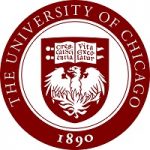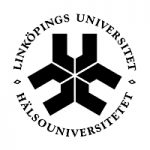项目介绍
Visit the UChicago Forward website, for the University’s COVID-19 health protocols and return to campus information
Updates on Coronavirus and Student Health and Wellness Resources
For BSD Specific Guidelines on Coronavirus (COVID-19) CLICK HERE
The graduate program in Human Genetics is the home within the Division of Biological Sciences for the study of basic principles of genetics and genomics as applied to human phenotypes. We provide broad training in experimental and computational genetics and genomics, statistical and population genetics, bioinformatics, and clinical genetics. A common theme throughout our research is the application of basic genetic principles and strategies to the study of disease mechanism, disease susceptibility, and the genetic architecture of complex traits. Within this framework, the goals of our program are to:
- Educate students broadly in the basic concepts and practices of human genetics and the disciplines of genomics, population genetics, bioinformatics and systems biology.
- Introduce students to the growing importance of evolutionary concepts and insights to the study of human disease and genetic variation.
- Prepare students for a new world of genetic medicine that will follow basic discoveries in our understanding of multifactorial inheritance.
Students are encouraged to take advantage of interactive and collaborative relationships at departmental, divisional, and university-wide levels. Our faculty bridge between basic and clinical research and train students for careers in academia, industry, and medicine. Recent graduates have obtained post-doctoral positions at Cornell University, Harvard University, the National Institutes of Health, Sanger Centre, UC Berkeley, UCSF, and UCLA. Other graduates hold faculty positions, practice medicine, or work in leadership positions in the biomedical industry.
The Academic Program
First Year of Study
Regardless of previous academic or laboratory experience, the first year of PhD study is spent taking classes, exploring research opportunities, and performing laboratory rotations. Students join a lab at the conclusion of the first year of study, after successfully passing a preliminary examination.
Before joining a lab, students attend bi-weekly seminars (informally referred to as “Allstars”) where divisional faculty present their research programs. They also undertake two or three laboratory rotations to acquaint them with the full spectrum of research and trainers available to them.
The Second Year
Students spend the second year developing a research project and preparing a written proposal of dissertation research. This proposal is defended before a qualifying examination committee at the end of the academic year. Students satisfy any remaining course requirements and complete at least one of the two required Teaching Assistantships during this year.
The Third Year and Beyond
After the qualifying exam, the student performs full-time thesis research while continuing to participate in departmental events such as seminars, journal clubs, etc. Students are welcome to audit courses in which they have an interest. Finally, in the final year of the program the student writes a dissertation describing his or her research, presents the work in a public seminar and defends it before his/her faculty examining committee. Please view the Human Genetics Handbook for a full description of the academic program and the courses available to our students.
Clinical Genetics exposure
Students are encouraged to interact with the diagnostic genetics labs and to attend the clinical case conferences.
Who Should Apply?
We admit highly-qualified, academically-curious scientists to our program. Many applicants enter the PhD program directly from undergraduate study, while others come to the program after working in research laboratories or industry. Successful PhD program applicants present excellent academic credentials in biology and statistics and strong letters of recommendation. We seek applicants with superior writing skills and substantial research experience. We strongly encourage applications from underrepresented minorities in the biological sciences.
Admissions
Submit your completed application by December 1. Submit a single application to UChicago Biosciences. Click here for additional information.
Financial Support
UChicago Biosciences offers academically qualified applicants full and equitable support. Such assistance is guaranteed through the student’s first five years of study, conditional on satisfactory degree progress, and is extended to completion of degree in all but the most unusual of circumstances. Financial support includes tuition and fees, and provides a stipend. The graduate stipend is maintained at a level affording a reasonable local standard of living, is competitive with awards offered at comparable institutions, and is periodically adjusted in response to cost-of-living increases. Click here for additional information.
联系方式
电话: 773.702.1234相关项目推荐
KD博士实时收录全球顶尖院校的博士项目,总有一个项目等着你!






